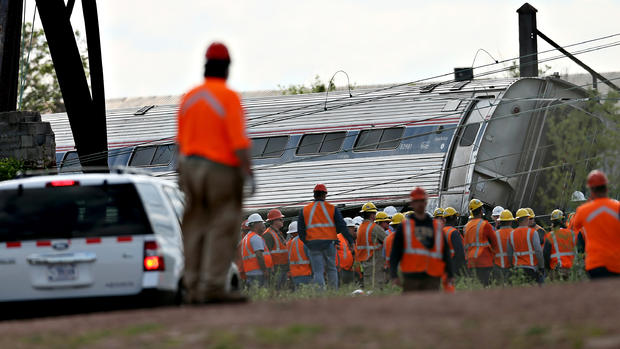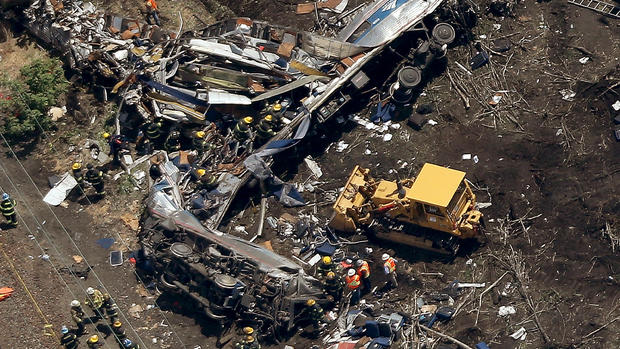Deadly Amtrak crash highlights system's aging equipment
WASHINGTON -- Some of Amtrak's equipment has been charitably described as "antique." Despite that, a House panel cut Amtrak's budget even more Wednesday, a day after the deadly crash in Philadelphia.
The 250 million people who ride Amtrak's rails each year pass through tunnels and over bridges that are more than 100 years old - and look it.
Amtrak's signal system was installed prior to World War II, and electrical wires date back to the 1930s.
According to a report by rail officials, "on some occasions trains get tangled in the lowered wires and tear them down."
"What Amtrak has is among the poorest that I've ever seen given the level of use they get," said former Amtrak CEO David Hughes. "The accumulated deferred maintenance and lack of attention really makes it almost a third-world operation."
Amtrak estimates that maintaining and upgrading the Northeast Corridor would cost $2.6 billion per year.
But Congress provided just $1.4 billion this year for all of Amtrak's operations from coast to coast.
Next year, funding will drop by nearly 20 percent despite an attempt by House Democrats Wednesday to boost it.
That didn't stop a bipartisan group of mayors, including New York's Bill de Blasio, from begging lawmakers to invest more in infrastructure.
But it doesn't appear that increased funding for rail is coming anytime soon. So what's the alternative?
"Practically speaking, we're stuck because the infrastructure keeps aging," said de Blasio. "As we're having this press conference, our cities' infrastructures are aging, certainly our rail system as well."
Amtrak's northeast line does turn a profit, but a lot of that money goes to prop up the rest of the Amtrak system. There is a bill working its way through Congress that would allow Amtrak to use more of that money to make improvements on its busiest line.


